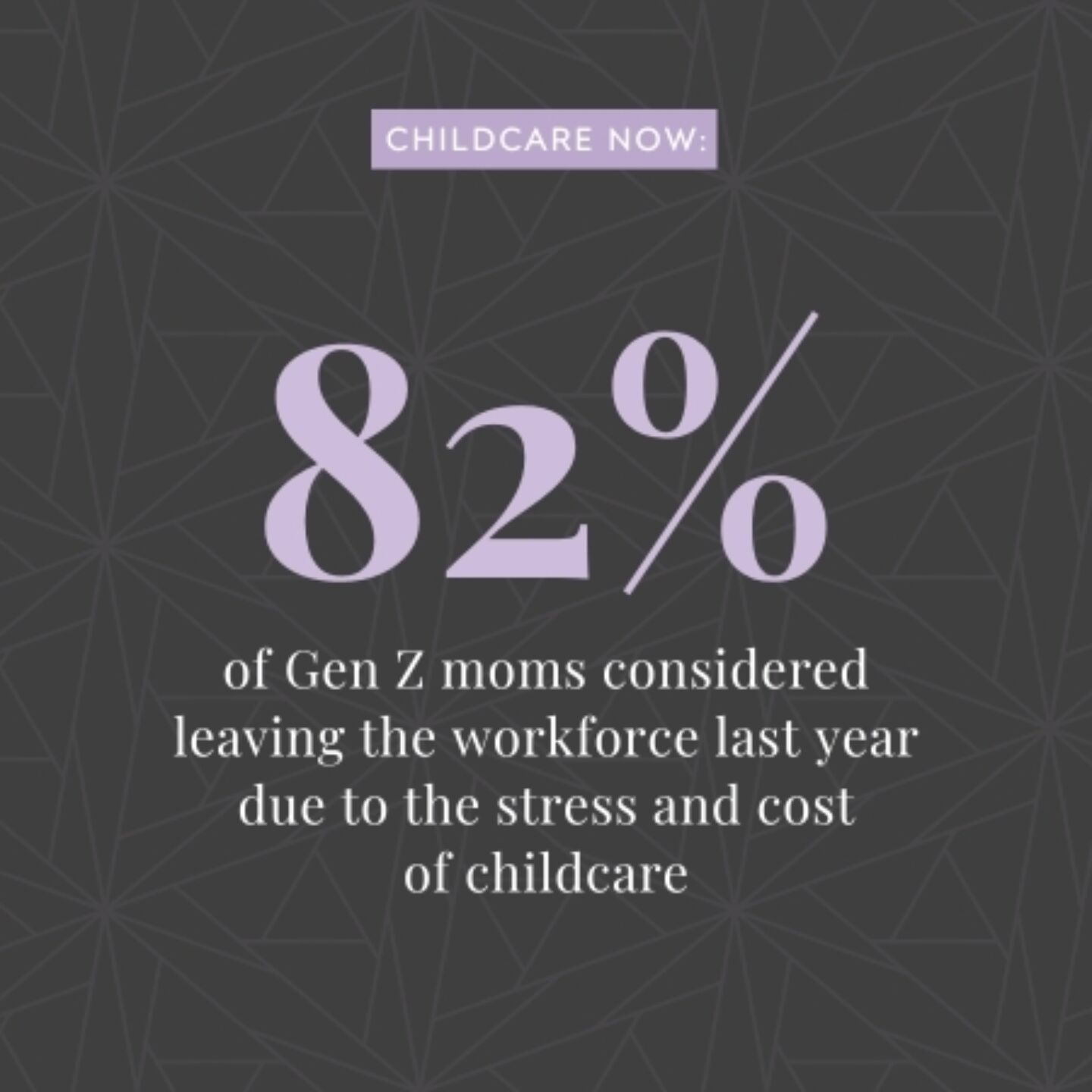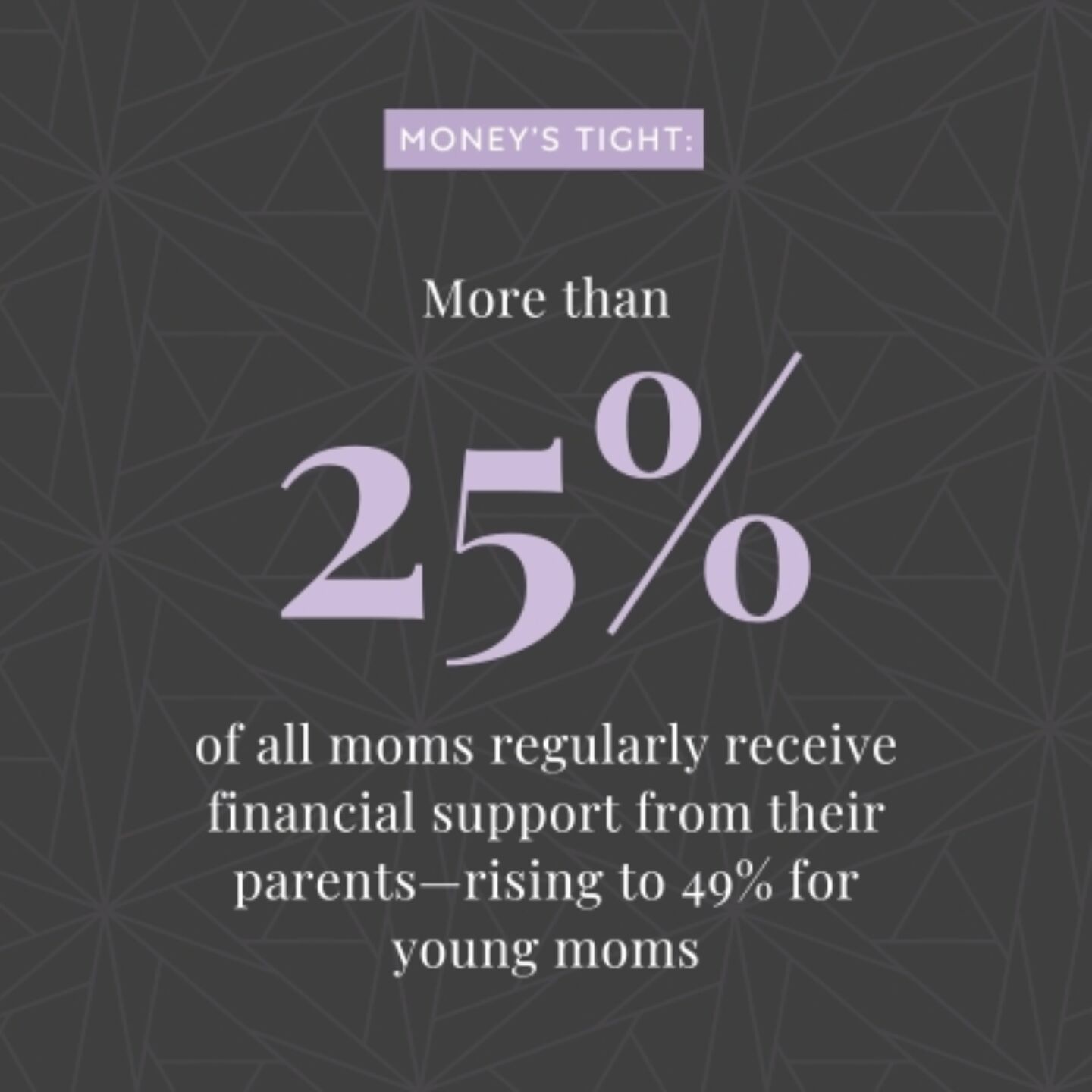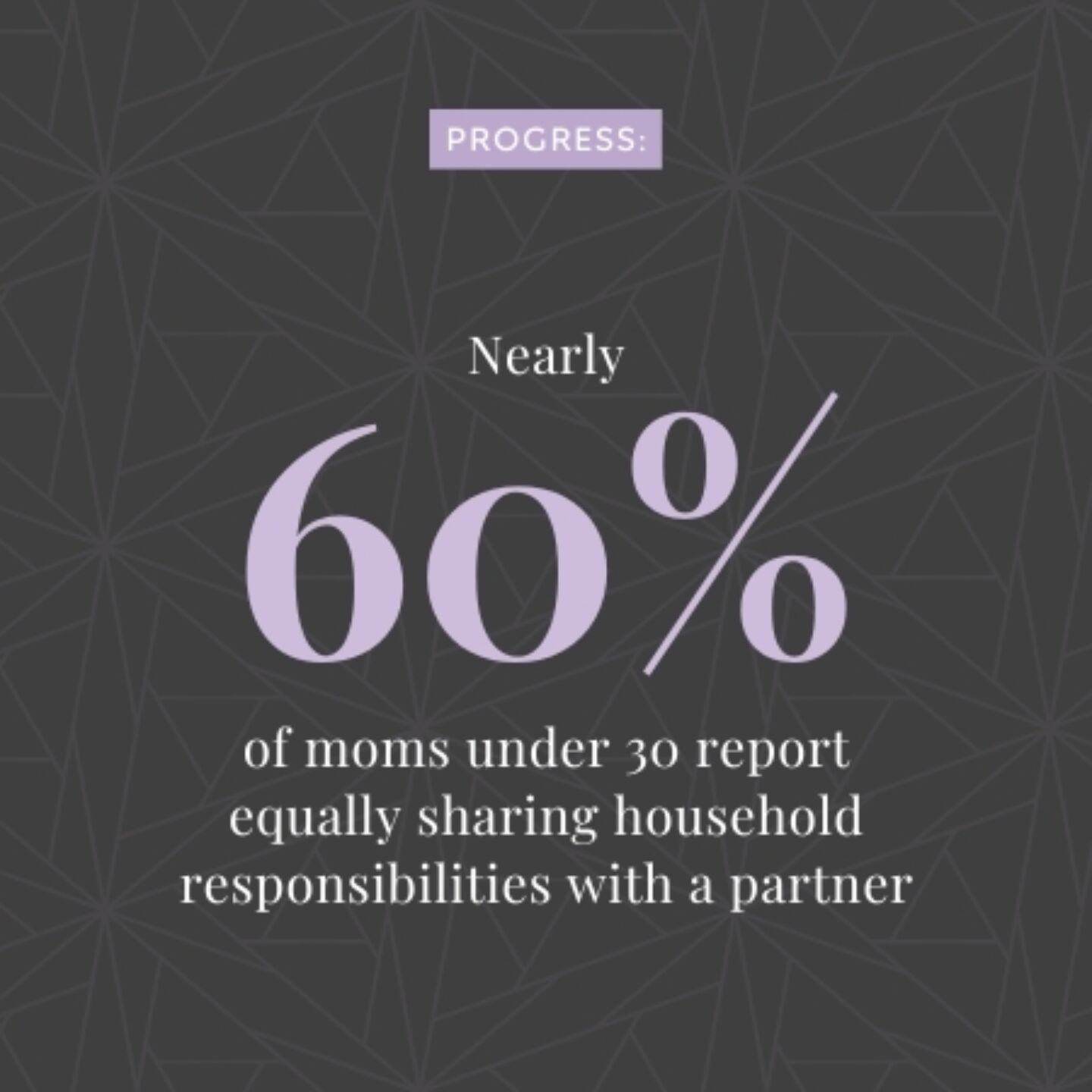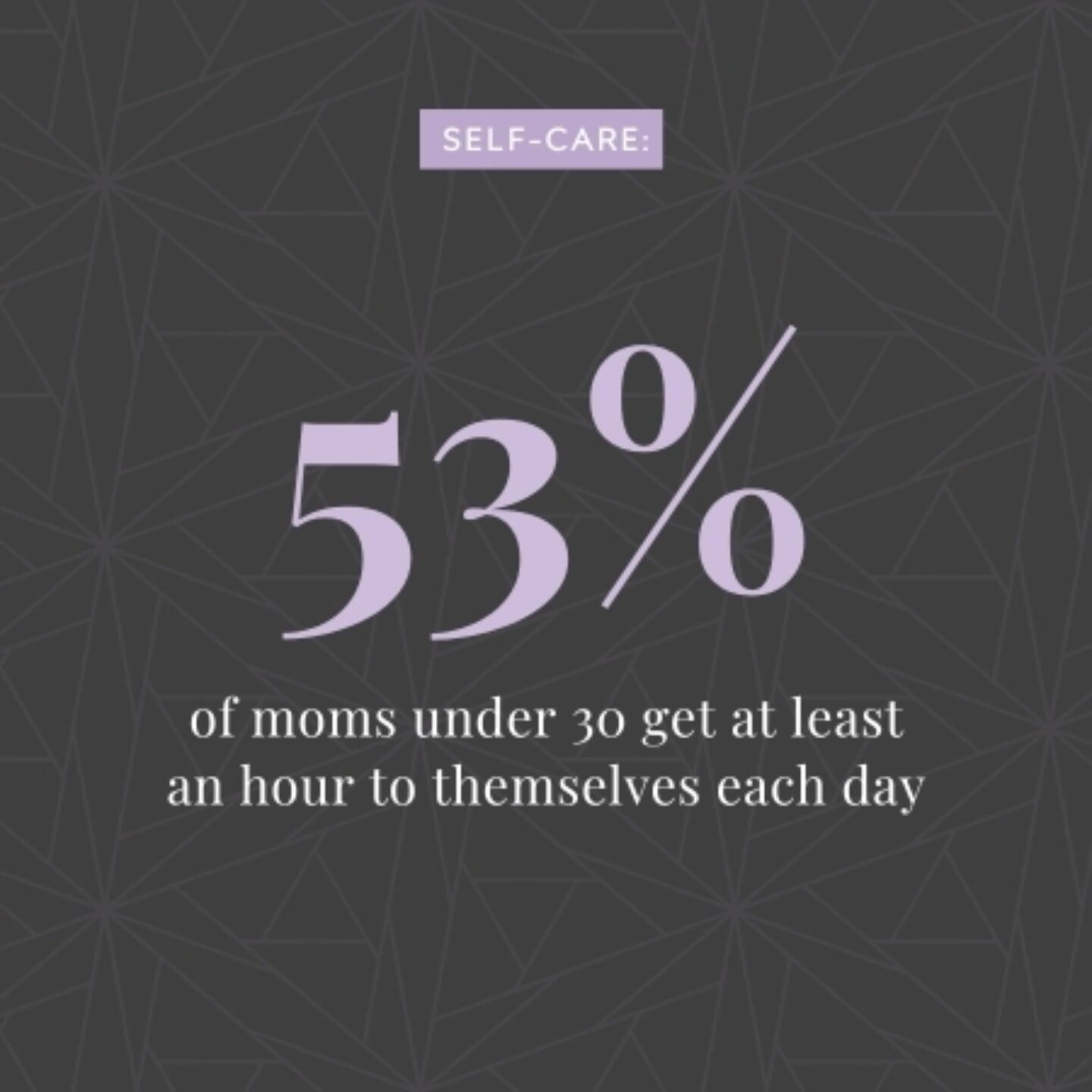“As we approach this election year, it is clear that mothers’ voices are not only relevant but vital in shaping a future where families can thrive. Let us heed their call for action, prioritize their needs, and champion the policies that will define the health and happiness of the next generation,” says Jill Koziol, Cofounder of Motherly.
Motherly amplifies the voices of mothers through our annual State of Motherhood survey, the largest statistically significant survey of mothers in the country. Nearly 6,000 mothers completed our seventh annual survey, conducted from March 3 to March 18, 2024. To ensure our results represent today’s mothers accurately, we weighted the data to align with US Census demographic data. Our report focuses on the findings from Gen Z (aged 18-27) and Millennial (aged 28 to 43) mothers. When reviewing our findings and generational comparisons, it is important to note that only 6% of Gen Z women are mothers, representing a distinct and emerging group entering motherhood earlier than many of their peers.
As in previous years, findings continue to validate that today’s mothers are parenting without adequate support. This year finds that Gen Z moms are signaling a continuing future birth rate decline; childcare access and affordability issues continue to impact mothers’ ability to work; a quarter of all moms report receiving regular financial support from their parents, with Gen Z moms twice as likely to have help from their partners compared to their own mothers’ generations (Gen X+). In this election year, more than 85% of moms over 30 support federally mandated paid leave, regulation to address climate change, federally protected reproductive rights and increased gun control policies. But findings also show that moms under 30 feel differently, possibly signaling apathy or low confidence in what those policies might bring.
The following report is a synthesis of this year’s findings. Here’s what we learned.
Gen Z mothers are much less likely to plan on having another child
In the next 10 years, it’s projected that about 80% of Millennials will be parents, but it’s unclear if Gen Z will embrace parenthood to the same extent. We learned this year that Gen Z moms under 30 are less than half as likely to plan on another child than Millennial moms under 30 were in 2019 (31% vs 65%), signaling a continued birth rate decline in the United States.
Q06: Are you planning on having or adopting more children?
| All Gen Z/Mil | Net <30 | Net 30-39 | Net 40+ | |
| Yes | 25% | 31% | 27% | 5% |
| No | 55% | 59% | 49% | 86% |
| Not Sure | 20% | 10% | 24% | 9% |
There are many reasons why mothers may choose not to add to their families—and looking at the survey responses, we see some interesting differences by age. “Family feels complete” coupled with financial concerns are the top reasons why moms in their 30s are choosing not to grow their families, while 40+ moms cite age as the number one reason, in addition to their family feeling complete. In contrast, younger moms point to a variety of reasons for not wanting to expand their families, including concerns about the state of the world:
- Combining financial reasons (11%), lack of support (11%) and career (11%); we see that 33% of younger moms feel that the need/desire to work combined with inadequate childcare support contributes the most to not wanting to have more children.
- Younger moms are much more likely to point to concerns about the environment and the state of the world as reasons not to have additional children (25% compared to 5% of those 30-39).
- Finally, although young, 1 in 10 (11%) of moms <30 cite medical considerations as the reason they would not like to have more children. This may be correlated with younger generations being more likely to be BIPOC and underserved by the healthcare system.
Read More: New report shows US birth rate has hit a record low—but please don’t blame moms
This data presents a comprehensive picture of modern and ambitious mothers. It reveals that women are more likely than ever to consider a career pause due to the high costs of childcare, among other factors. It also shows the surge of women who eventually return to the workforce after time away. I hope this is another cultural call to action that it’s not only time to advocate for more support for parents in the workforce but also to normalize career pauses so that women can shift in and out of the traditional workplace with more support and less penalty on reentry.
— Neha Leela Ruch, Founder & CEO of Mother Untitled
Two-thirds of moms considered leaving the workforce last year due to the stress and cost of childcare, highest among Gen Z at 82%
This year, more mothers are in the workforce, with younger moms showing a strong trend of re-entering or joining work, influenced by economic pressures such as inflation. Despite this, a consistent issue remains: childcare. Many mothers report leaving or adjusting their work life due to the lack of affordable childcare, a sentiment that resonates deeply across all ages—but is most pronounced among the youngest generation.

Cost and stress of the daycare situation has always been rated as a reason to consider leaving the workforce, but this year it registers at an all-time high at 66% (up 14% year over year), driven mostly by moms under 30, among whom 82% say cost and stress related to childcare is a reason to leave the workforce.
Access to affordable, high-quality childcare continues to be a primary concern for working moms—and a key driver in women leaving the workforce or being able to return to full-time work. Half of non-working moms point to the need for affordable childcare as the prerequisite for returning to/entering the workforce.
Four in 10 moms who made a job or employment change in the past 12 months did so because of lack of childcare or needing/wanting to stay home with children.
Related: 1 in 4 parents say they’ve been fired for childcare challenges
Coming out of the pandemic, very little has moved for moms on childcare. Across the years, two-thirds of mothers surveyed are paying more than $1000 a month for care—contributing to the main reason for why parents are dissatisfied with their childcare situation.
Our traditional work contract is inadequate, particularly in supporting family needs. With 66% of young mothers considering leaving the workforce due to childcare costs and stress, it’s critical to empower women to use technology to develop innovative solutions. Let’s redefine work flexibility and enhance childcare options to retain and support working mothers.
Brooke Markevicius, Tech Entrepreneur & Author of “The Future Built by Women”
Gen Z moms are 2.5 times less likely than Millennial moms to have position flexibility and half as likely to have paid maternity leave
Younger moms under 30 report unique needs and pressures, including less flexibility with work for them and their partners. Moms 30 and older are 2 to 3 times as likely as younger moms to have full-time employment that allows them to work from home. In contrast, moms under 30 who are working from home are much more likely to work only part-time. Meanwhile, younger moms are also less likely to have some support from a partner who also works from home–only 7% compared to 1 in 5 among moms 30+.
Dishearteningly, evidence in the survey suggests that younger, newer moms are getting the least amount of support in the workplace:
| If you are employed, what benefits does your employer offer that supports you as a mother? Select all that apply. | ||||
| All GenZ/Mil | Net <30 | Net 30-39 | Net 40+ | |
| Position flexibility (e.g., more part-time, remote work, job-sharing, or schedule flexibility) | 59% | 30% | 66% | 72% |
| Paid maternity leave | 43% | 26% | 48% | 37% |
Finally, Motherly provides undeniable evidence that the broken rung in the career ladder is not of our making! Toxic workplaces drive away experienced working moms, perpetuating the gender gap in leadership. We should prioritize our mental health over our careers, but when we do, we’re still punished. Toxic environments limit our representation at the top, stifle mentorship and growth, and deprive future and younger working moms of guidance. And let’s be clear: companies also suffer, losing valuable and proven productive employees, thereby negatively impacting their bottom line.
Christine Michel Carter, Speaker, Consultant, Writer
More than a quarter (27%) of all moms regularly receive financial support from their parents, rising to 49% for moms under 30
It is not surprising that today’s parents still need some support from their parents. Indeed, over one-quarter (27%) report taking financial help regularly or occasionally. However, this year, half (49%) of moms under 30 report taking financial help from parents, noting they struggle with living expenses and student loan debt, falling off to an average of 23% among those aged 30 to 39, before declining to 16% among parents in their 40s.

While there is a general progression in financial well-being with age, many young mothers still feel the pressure of living paycheck to paycheck. In general, there is little change in self-assessment of financial well-being since last year:
| Financial Situation | 2022 Total | 2023 Total | 2024 Total |
| On track – living below my means and will be prepared for the future | 19% | 20% | 23% |
| Almost on track – living below my means and saving a bit but need to save more | 39% | 40% | 34% |
| At my means – living paycheck to paycheck, spending almost everything I make every month, but I’m not going any deeper into debt | 31% | 29% | 31% |
| Beyond my means – spending more than I make every month and going deeper into debt | 10% | 9% | 10% |
Nonetheless, the majority of moms (79%) remain fairly optimistic that their children will be better off financially—with younger moms especially so, while moms with children aging into teens and adults are a little less optimistic.
Moms are reporting feeling financially stressed, and this holds true regardless of income. While there appears to be a little easing of the purse strings this year compared to last year’s worries of recession, the trend is still toward cutting back.
Read More: More families are struggling to make ends meet more than ever—something has to give
Nearly 60% of moms under 30 report equally sharing household responsibilities with a partner vs. 35% of moms over 30
Encouragingly, there’s a shift towards more equitable sharing of household responsibilities among younger couples, with many reporting a true partnership approach to chores and parenting duties.

With each generation, there has been progress in terms of moms sharing household responsibilities with a partner. This is the first year in which a majority of any cohort of moms report they share responsibilities equally, with 59% of moms under 30 saying this is the case. Gen Z moms get more help from their partners compared to Millennials—and they are twice as likely to have help from their partners, compared to their own mothers’ generations (Gen X+). Moms aged 30-39 are split, with half (53%) saying household responsibilities fall to solely or mostly them; and 60% of moms in their 40s saying it is solely or mostly on their shoulders. Of note, moms under 30 are 10% more likely to have a partner than moms over 40.
| Who in your household primarily handles household chores/responsibilities? | AllGenZ/Mil | Net <30 | Net 30-39 | Net 40+ |
| Mostly me | 42% | 27% | 45% | 47% |
| Share equally | 42% | 59% | 40% | 29% |
| Only me | 8% | 4% | 8% | 13% |
| Mostly my partner | 3% | 5% | 3% | 3% |
| Only my partner | 1% | 2% | 1% | 1% |
| Outsource or hire out chores and responsibilities | 1% | 1% | 1% | 2% |
| Not applicable, single parent | 2% | 3% | 1% | 5% |
The survey shows promising trends among Gen Z moms, who not only report a more equitable distribution of household duties, but also a higher engagement in therapy, with 7 in 10 seeking support in the past year. These positive changes are crucial for maternal health. Despite this progress, challenges like affordable childcare, flexible work options and sufficient maternity leave remain pressing issues.
— Erica Djossa, Founder & CEO of Momwell
Related: Gender equity at home is still out of reach for many, our survey shows
53% of moms under 30 get at least an hour to themselves each day vs. only 39% for all moms
Possibly thanks to more help from their partners, younger moms are also paying more time and attention to their self-care. Moms under 30 report working out more frequently, going out with friends more often and going on date night more frequently than their older counterparts.

| Total GenZ/Mil | Net <30 | Net 30-39 | Net 40+ | ||
| On average, how frequently do you work out for at least 30 minutes a day? | Every day | 11% | 17% | 9% | 12% |
| A few times a week | 35% | 34% | 35% | 36% | |
| A few times a month | 27% | 30% | 27% | 21% | |
| A few times a year | 12% | 8% | 12% | 13% | |
| Never | 15% | 10% | 16% | 18% | |
| On average, how many times a month do you go out with friends, without children? | 0 times | 43% | 26% | 47% | 44% |
| 1-2 times | 44% | 38% | 45% | 47% | |
| 3-4 times | 9% | 21% | 5% | 8% | |
| 5+ times | 5% | 15% | 2% | 2% | |
| On average, how many times a month do you go on a date with your partner? | 0 times | 41% | 21% | 45% | 47% |
| 1-2 times | 44% | 40% | 45% | 41% | |
| 3-4 times | 9% | 21% | 6% | 9% | |
| 5+ times | 6% | 18% | 4% | 3% | |
| On average, how much time do you get to yourself without work or family obligations each day? | Less than 1 hour | 61% | 47% | 64% | 53% |
| 1-2 hours | 32% | 38% | 32% | 35% | |
| 3 or more hours | 7% | 15% | 5% | 12% |
When it comes to getting at least an hour of time to themselves each day, moms under 30 with younger children look more like older moms over 40 with more self-sufficient children. It’s hard to say how much of this difference between moms under 30 and those over 30 is due to age, truly different attitudes or the realities of having one child versus two or three.
Again, possibly because of getting more partner support and more time for themselves, younger moms also report having more sex and being more satisfied with their sex lives.
| Among moms with partner | Total GenZ/Mil | Net <30 | Net 30-39 | Net 40+ |
| Frequency of sex | ||||
| 3 or more times a week | 8% | 16% | 6% | 7% |
| 1-2 times a week | 33% | 37% | 32% | 31% |
| 1-2 times a month | 35% | 32% | 37% | 31% |
| Less than once a month | 25% | 15% | 25% | 31% |
| Ideal sex frequency | ||||
| 3 or more times a week | 19% | 33% | 17% | 12% |
| 1-2 times a week | 59% | 48% | 62% | 58% |
| 1-2 times a month | 19% | 18% | 19% | 23% |
| Less than once a month | 3% | 0% | 3% | 7% |
| How satisfied are you with your sex life? | ||||
| Extremely satisfied | 12% | 19% | 11% | 9% |
| Satisfied | 31% | 33% | 32% | 28% |
| Neither satisfied nor dissatisfied | 35% | 36% | 34% | 32% |
| Dissatisfied | 17% | 10% | 18% | 21% |
| Extremely dissatisfied | 5% | 1% | 5% | 10% |
| TOTAL SATISFIED | 43% | 52% | 42% | 38% |
| TOTAL DISSATISFIED | 22% | 12% | 23% | 30% |
Younger moms are more likely than their older counterparts to desire sex more frequently and to be having sex closer to their ideal frequency. Even though moms under 30 report they are having less sex than before (53%), they are still more likely to report satisfaction with their overall sex life.
Read More: What if we saw sex as self-care?
Moms indicate near universal support for motherhood-related governmental policies, but Gen Z moms diverge, indicating apathy
In 2024, a critical election year, we found that at least 85% of moms support federally mandated paid leave, regulation to address climate change, federally funded reproductive rights and increased gun control policies, but surprisingly, moms under 30 are three times less likely to support these policies.
Motherly’s State of Motherhood survey asked about a variety of policy issues that pertain to moms. There are notable differences by age related to the priority level of critical concerns:
- Moms over 30 (with school-age children) are more likely to place gun control in the top 1 or 2 issues compared to moms under 30 (despite their closer proximity to high school)
- Moms in older demographics are more concerned about reproductive rights, possibly as they think about their own daughters
- Moms under 40 are more likely to prioritize family leave and childcare, still having the greatest need for those programs and services
- Moms under 30 rate environmental concerns as high as healthcare access or costs
Most interestingly, across the board we see weaker support from the youngest mothers on most of the policy actions tested. The survey does not delve into why moms may be more or less supportive of policy action, but the results suggest some amount of skepticism or apathy among younger moms that regulation will lead to real systemic change.
The findings in this report should be a huge wakeup call for our politicians. Mothers overwhelmingly support federal paid leave, reproductive rights, increased gun control and climate change regulation. These are the issues that mothers care about. And we are going to vote accordingly.
Allison Whalen, Founder & CEO of Parentaly
Read More: Gen Z moms are less likely to support gun control and paid leave this election year, our survey shows
| Election Topic | Total GenZ/Mil | Net <30 | Net 30-39 | Net 40+ |
| Regulation to address climate change | ||||
| SUPPORT | 85% | 65% | 89% | 83% |
| NOT SUPPORT | 15% | 35% | 11% | 17% |
| Federally protected reproductive rights | ||||
| SUPPORT | 84% | 65% | 88% | 86% |
| NOT SUPPORT | 16% | 35% | 12% | 14% |
| Federally mandated paid leave | ||||
| SUPPORT | 92% | 73% | 96% | 97% |
| NOT SUPPORT | 8% | 27% | 4% | 3% |
| Increased gun safety/gun control policies | ||||
| SUPPORT | 86% | 67% | 91% | 87% |
| NOT SUPPORT | 14% | 33% | 9% | 13% |
| US involvement in international conflict | ||||
| SUPPORT | 58% | 53% | 59% | 64% |
| NOT SUPPORT | 42% | 47% | 41% | 36% |
Read the full report.
METHODOLOGY STATEMENT
Motherly designed and administered this survey taken by 5,608 mothers through Motherly subscribers list, social media and partner channels. This report focuses on the cleaned and weighted Millennial/Gen Z cohort of 3,220 respondents aged 18-43. Edge Research weighted the data to reflect the racial and ethnic composition of the US female Millennial cohort based on available US Census data.
Source link

